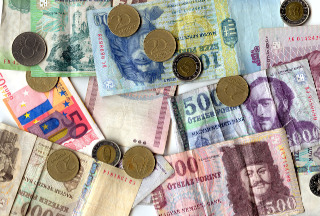Got Choices?

Bringing Choices to Money
Energy is critical in the development of an economy because it supplies the motive force to advance and improve. Education is key because it determines how our society will evolve with each new generation. But in some ways, money may be an even more important concept since it forms the very lifeblood of civil society. Without money, in one form or another, it is extremely difficult to cooperate with each other in the development of life-sustaining resources. And without cooperation, it is nearly impossible to improve the quality of our lives in the ways we want and need.
As we begin, two famous phrases come to mind:
Money makes the world go around.
and
Money is the root of all Evil.
In the following sections we will attempt to understand why mankind may have coined these two seemingly contradictory phrases about money. We will see that in some ways, both statements can be true. Yet in other ways, either can be false.
Hopefully we will again be able to step outside the box, or think outside our standard set of perceptions about money, and be able to look at things in a new way. By doing so, you will arrive at an enlightening conclusion: in the same way you prefer to choose what grocery store to visit, or where you want to live, it should be possible to also choose what kind of money you will put your trust and confidence in.
But before we get there, it will be helpful to go through one more theoretical exercise. We have already discussed such diverse subjects as history, physics and even feedback theory. These topics have helped in understanding the basic forces of economics and how they influence our society.
Likewise, in order to better understand money, we should know how to speak the language of money: accounting.
Now, before you stop reading, be assured this will not be the version of accounting 101 you may have suffered through in college. Instead, we will look at accounting from a more practical standpoint. How can we use accounting concepts to better understand the way value flows from one party to another in an economy? And how can we use this understanding to better comprehend what money is, what debt is and what kinds of outcomes in an economy should be most desirable for normal people like you and me?
If you are a formally trained accountant, you may not think this is really accounting because we will attempt to explain things in a little more intuitive way than is customary. This method is sometimes helpful to non-accountants because it helps them visualize money and how it is used to transfer value through an economy. This is done by making a comparison to something we are more familiar with, like water flowing out of one cup and into another.
At the same time however, it is important to understand some of the technical jargon accountants and economists use when talking about money and the economy. So we will review some of those terms and what they really mean in a practical sense.
